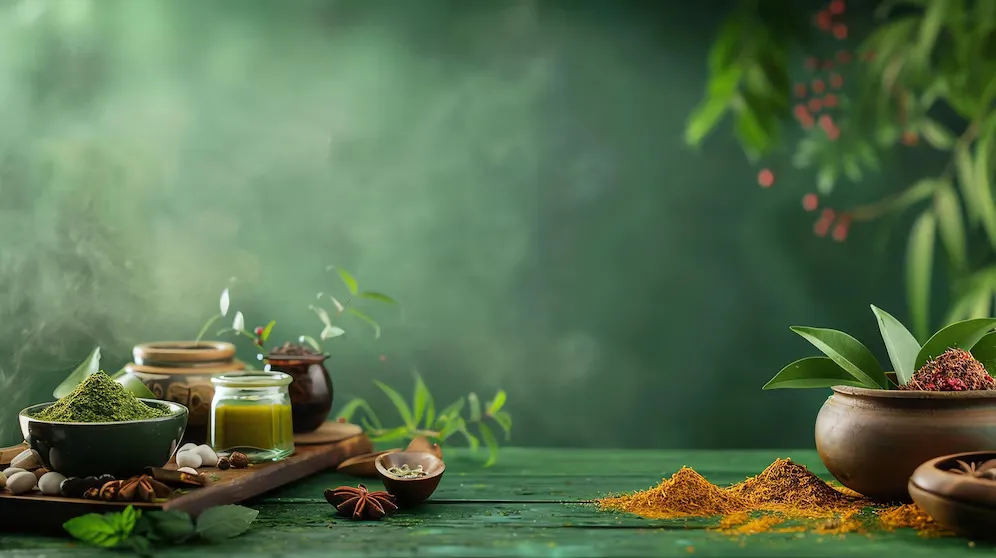
Ayurveda in Europe: Integrating Eastern Medicine into Western Lifestyles
Aug 16, 2024
Ayurveda, the ancient healing tradition of India, has transcended borders and is making inroads into Europe. It is, however, this very completeness that invites attention from those who seek natural, holistic methods of health and well-being. So how is this Eastern system of medicine blending with the fast-paced and often stressful Western lifestyle? Let's get into this cultural fusion and what makes Ayurveda so important in Europe.
A Short Introduction to Ayurveda
Before embarking on this European influence, it is only prudent we first understand what Ayurveda really is. Ayurveda can be best described as a natural medicine system over 5,000 years old, which stresses the need for maintenance of one's body balance using diet, herbal treatments, and yogic practices. At its most basic, Ayurveda is an attempt to harmonize the body, mind, and spirit into boosting the overall well-being of an individual rather than just to get rid of symptoms of disease.
Among the hallmarks of Ayurveda are the herbs one would find being used, with a great player in that line being Shatavari. Known as the "Queen of Herbs," Shatavari is used because it has some adaptogenic properties in increasing vitality and assisting the body in dealing with stress, particularly for women.
The Growing Popularity of Ayurveda
So why is Ayurveda becoming the next 'in-thing' in Europe? It seems that Europeans are desperately looking for a complete health-management system that also happens to be sustainable. Awareness of the side effects of conventional medicines, and a collective shift towards preventive healthcare, have fueled interest in alternative practices like Ayurveda.
This Ayurvedic practice has also been settling among the people of countries like Germany, the UK, and France. Ayurveda consultations and treatment, as well as diet plans, are available in yoga studios, wellness centers, and health retreats. Added to these are many of the online platforms whereby Ayurvedic products and their consultations take just a click from the Europeans who can easily bring it into their day-to-day routine.
Integrating Ayurveda into Modern European Lifestyles
Ayurveda does not adapt to life in the West. In European living, with all its hurried activity and often stress-creating attitude, there lies an inherent dichotomy with the slowed down, reflective living that Ayurveda speaks about. But many people have been able to bridge this gap between these two worlds; here's how:
Dietary Modifications: A more commonly employed dietary supplement among the Europeans is the adoption of Ayurvedic guidelines in preparing daily meals to balance the six tastes and include health-friendly spices, like turmeric and ginger.
Daily Routines (Dinacharya): mplementation of Ayurvedic daily routines, known as Dinacharya, which is truly life-transforming for many. Starting to follow simple practices like tongue scraping, oil pulling, and drinking warm water with lemon in the morning are like new additions.
Herbal Supplements: A growth in the intake of Ayurvedic herbs is specifically in Shatavari. Shatavari is known to women for its nourishing properties and is commonly used to help keep hormones in balance, for reproductive health, and to boost immunity. It is available in a wide range of forms such as powders, capsules, and liquid extracts and hence can be attained by a large population.
Mind-Body Practices: Major mind-body practices, deep-rooted in Ayurvedic principles, include yoga and meditation. These two have already gained immense popularity and are quite well established in Europe. These practices will complement the focus on mind-body balance in Ayurveda to be included among the wellness routines.
Ayurvedic Consultations: The consultations held by the practitioners are evolving to suit modern, realistic European life. While offering one-on-one advice on diet, lifestyle, and herbal medicine, an Ayurvedic practitioner is sure to bring this ancient wisdom to people in a way that can be accessed practically in the modern world of Europe.
Shatavari: The Jewel Among Europe's Ayurvedic Herbs
Among a number of Ayurvedic herbs, Europe is especially focusing on Shatavari today. It mainly acts favorably for women as a rejuvenating herb, keeping their reproductive health, decreasing symptoms of PMS, and increasing fertility. Its useful properties are not restricted to women only: it is also widely appreciated for its potential to boost the immune system and enhance digestion.
Shatavari in Europe comes in several forms, starting from traditional powder to modern capsules and teas. In such a versatile form, it becomes easy to take daily: either integrated into smoothies, mixed into warm milk, or taken as a supplement on its own.
Challenges and Future of Ayurveda in Europe
Although gaining popularity in Europe, some hurdles are still laid for Ayurveda, especially with regulatory challenges, differing cultural perspectives on health, and, at times, the need for more education around Ayurvedic principles.
But the future looks bright—with Ayurvedic practices and herbs such as Shatavari getting increasing research and a consumer base that seeks natural health solutions, Ayurveda will find its market in Europe. And with growing numbers of European practitioners becoming better trained in Ayurveda, the depth and quality of available Ayurvedic care can only get better. .
When East Meets West
The best example of this fact is the integration of Ayurveda into European lifestyles, possibly being a great blend of East and West wisdom. Although there are so many hurdles in the way, the trend of following the prescribed theory of Ayurveda in Europe has signaled a movement toward a more holistic, natural, and balanced way of living. As more and more Europeans embrace Ayurveda in their diet, daily routine, or with herbs like Shatavari, they are not just taking on new wellness trends; they are relating back to an ancient system that emphasizes balance, health, and harmony—values deep and important to people across the world.



